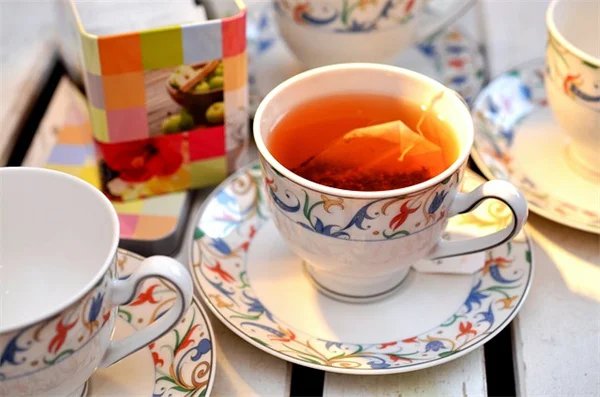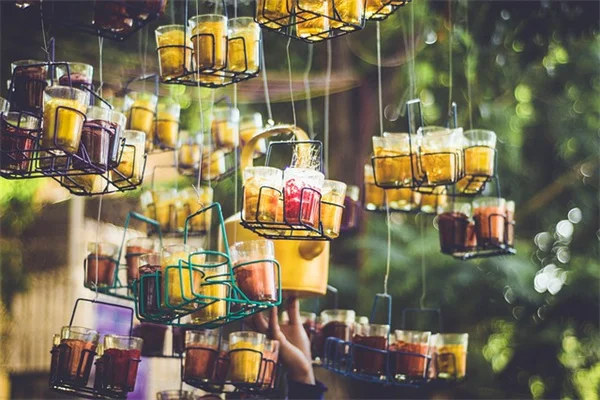Advertisement
Are your everyday medications harming your kidneys? The answer is: Yes, many common drugs can damage your kidneys if taken incorrectly or in high doses. We're talking about medications you probably have in your medicine cabinet right now - painkillers like Advil, leftover antibiotics, even some supplements. What's scary is that 1 in 3 Americans are at risk for kidney disease, and many don't realize their meds could be part of the problem.I've seen this happen firsthand - my neighbor Bob used to pop Aleve like candy for his back pain, and now he's dealing with stage 2 kidney disease. The truth is, drug-induced kidney damage is often preventable if you know what to watch for. In this article, we'll break down exactly which medications pose the biggest risks and give you practical steps to protect your kidney health without giving up needed medications.
E.g. :Ozempic and Wegovy Study: No Suicide Risk Found in New Research
- 1、Your Medicine Cabinet Might Be Secretly Attacking Your Kidneys
- 2、The Surprising Kidney Offenders You'd Never Suspect
- 3、Who's Most at Risk? (Spoiler: It Might Be You)
- 4、How to Protect Your Kidneys Without Giving Up Needed Meds
- 5、Warning Signs You Should Never Ignore
- 6、Practical Steps You Can Take Today
- 7、The Bottom Line on Kidney Health
- 8、The Hidden Dangers Lurking in Your Supplement Cabinet
- 9、The Alcohol-Kidney Connection You Never Considered
- 10、Your Daily Habits That Secretly Stress Your Kidneys
- 11、The Workplace Hazards You Never Knew About
- 12、Kidney-Friendly Alternatives You'll Actually Enjoy
- 13、Tech Tools That Help Protect Your Kidneys
- 14、FAQs
Your Medicine Cabinet Might Be Secretly Attacking Your Kidneys
Did you know that 1 in 3 Americans are at risk for kidney disease? And get this - the painkillers you pop like candy might be part of the problem. Let's talk about how everyday medications could be harming your kidneys without you even realizing it.
NSAIDs: The Silent Kidney Killers
We've all reached for that bottle of Advil after a tough workout or a long day. But here's the kicker - NSAIDs like ibuprofen and naproxen are among the biggest offenders when it comes to kidney damage.
Think about this: if you're taking these more than occasionally without talking to your doctor, you might be setting yourself up for trouble. My neighbor Bob used to take Aleve like it was candy for his back pain - now he's dealing with stage 2 kidney disease. Not exactly the trade-off he was hoping for!
Antibiotics: Not Always Your Friends
Ever saved leftover antibiotics "just in case"? You're not alone - but you might be putting your kidneys at risk.
Here's why this is a problem: antibiotics are designed for specific bacterial infections. When you self-medicate with old prescriptions, you're not just risking antibiotic resistance - you're potentially damaging your kidneys. It's like using a sledgehammer to crack a walnut when all you need is a nutcracker!
The Surprising Kidney Offenders You'd Never Suspect
 Photos provided by pixabay
Photos provided by pixabay
Heartburn Meds: More Than Just Relief
PPIs like Prilosec might seem harmless, but long-term use can sneak up on your kidneys. Did you know that people taking PPIs for over a year have a 20-50% higher risk of kidney issues?
Let me put it this way: these meds are like that friend who helps you move but then eats all your food. They solve one problem while quietly creating another.
Blood Pressure Meds: A Double-Edged Sword
Now here's where it gets tricky. ACE inhibitors and ARBs are great for controlling blood pressure, but they can also stress your kidneys if you're not careful.
Check out this comparison of common blood pressure meds and their kidney risks:
| Medication Type | Example Drugs | Kidney Risk Level |
|---|---|---|
| ACE Inhibitors | Lisinopril, Enalapril | Moderate |
| ARBs | Losartan, Valsartan | Moderate |
| Diuretics | Hydrochlorothiazide | Low |
Who's Most at Risk? (Spoiler: It Might Be You)
The Age Factor
If you're over 60, your kidneys aren't as resilient as they used to be. It's like comparing a brand new sponge to one that's been used for years - they both work, but the older one wears out faster.
But wait - does this mean everyone over 60 will have kidney problems? Absolutely not! It just means we need to be more careful about what we put in our bodies.
 Photos provided by pixabay
Photos provided by pixabay
Heartburn Meds: More Than Just Relief
Diabetes, high blood pressure, lupus - these conditions already put stress on your kidneys. Add certain medications to the mix, and you've got a perfect storm brewing.
Here's something that might surprise you: people with diabetes are twice as likely to develop kidney issues from medications compared to those without. That's why regular check-ups are so important!
How to Protect Your Kidneys Without Giving Up Needed Meds
Be a Smart Medication Manager
Keeping a current list of all your meds - including supplements - is one of the simplest yet most powerful things you can do for your kidney health.
Pro tip: take a photo of your medicine cabinet and show it to your doctor at your next visit. They can spot potential kidney risks you might miss.
Hydration: Your Kidneys' Best Friend
Water isn't just for quenching thirst - it's like giving your kidneys a daily spa treatment. Staying well-hydrated helps flush out toxins and keeps everything running smoothly.
Here's a fun challenge: try drinking half your body weight in ounces of water each day. So if you weigh 160 pounds, aim for 80 ounces. Your kidneys will thank you!
Warning Signs You Should Never Ignore
 Photos provided by pixabay
Photos provided by pixabay
Heartburn Meds: More Than Just Relief
Kidney disease is called the "silent killer" for a reason - early symptoms are easy to miss. But here are some red flags:
- Swollen ankles that make your shoes feel tight
- Feeling tired all the time, even after good sleep
- Changes in how often you pee
Remember my friend Sarah? She ignored her fatigue for months, blaming it on work stress. Turns out her kidneys were only functioning at 60%!
When to Sound the Alarm
If you're experiencing nausea, confusion, or shortness of breath along with other symptoms, it's time to see a doctor ASAP. These could signal advanced kidney issues.
Think of it like your car's check engine light - you wouldn't ignore that, would you? Your body's warning signs deserve the same attention.
Practical Steps You Can Take Today
Talk to Your Doctor (Yes, Really!)
Having an open conversation with your healthcare provider about your medication risks is the single most important thing you can do.
Ask this simple question: "Could any of my current medications be affecting my kidney function?" You might be surprised by the answer.
Lifestyle Tweaks That Make a Difference
Small changes can have a big impact on kidney health:
- Cut back on processed foods (your kidneys hate excess salt)
- Move your body for 30 minutes most days
- Limit NSAID use to occasional rather than regular
And here's a bonus tip: try turmeric in your cooking. Some studies suggest it may help support kidney function - plus it makes food taste great!
The Bottom Line on Kidney Health
Medications are tools - when used correctly, they're incredibly helpful. But like any tool, they can cause damage if misused. The key is being informed and proactive about your kidney health.
Your kidneys work hard for you 24/7. Isn't it time you returned the favor? Start with one small change today - your future self will thank you!
The Hidden Dangers Lurking in Your Supplement Cabinet
Protein Powders: More Than Just Muscle Fuel
You might think protein shakes are harmless, but here's something that'll make you pause - excessive protein intake forces your kidneys to work overtime. Imagine running a marathon every single day without rest - that's what you're asking your kidneys to do!
Let me share a personal story. My gym buddy Jake was consuming three protein shakes daily plus a high-protein diet. His bloodwork showed elevated creatinine levels within six months. The doctor told him to cut back before permanent damage occurred. Now he sticks to one shake and focuses on whole food protein sources.
Herbal Supplements: Nature's Not Always Gentle
Just because it's "natural" doesn't mean it's safe for your kidneys. Some popular herbs like ephedra, yohimbe, and even large amounts of licorice root can be surprisingly harsh on these vital organs.
Did you know the FDA doesn't regulate supplements as strictly as medications? That means you could be taking something potentially harmful without realizing it. Always check with your doctor before adding new supplements to your routine.
The Alcohol-Kidney Connection You Never Considered
Happy Hour's Hidden Cost
We all know alcohol affects the liver, but here's something you probably didn't realize - alcohol dehydrates your body, forcing your kidneys to conserve water instead of flushing out toxins. It's like trying to clean your house while someone keeps turning off the water!
Moderate drinking might be okay for most people, but binge drinking can cause sudden kidney damage. My cousin learned this the hard way after a weekend bachelor party landed him in the ER with acute kidney injury.
Cocktail Combinations to Avoid
Mixing alcohol with certain medications creates a double whammy for your kidneys. NSAIDs plus alcohol? That's like throwing gasoline on a fire. Check out these dangerous combos:
| Medication Type | Alcohol Interaction | Kidney Risk Level |
|---|---|---|
| Pain Relievers | Increased dehydration | High |
| Antibiotics | Reduced effectiveness | Moderate |
| Blood Pressure Meds | Dangerous blood pressure drops | High |
Your Daily Habits That Secretly Stress Your Kidneys
The Caffeine Conundrum
That morning coffee ritual might be doing more harm than you think. While moderate caffeine is generally safe, excessive amounts can lead to dehydration and increased blood pressure - both kidney stressors.
Here's a fun fact: caffeine is a diuretic, meaning it makes you lose water. But did you know that regular coffee drinkers develop a tolerance to this effect? That's why your third cup doesn't send you running to the bathroom like your first one did!
Sleep Deprivation's Silent Toll
When you skimp on sleep, you're not just making yourself groggy - you're disrupting your body's natural detox processes. Your kidneys actually have their own circadian rhythm that gets thrown off by poor sleep habits.
Think about this: one study showed that people who regularly slept less than 6 hours had a 19% higher risk of kidney function decline. That's like adding five years to your kidneys' age!
The Workplace Hazards You Never Knew About
Sitting All Day: Not Just Bad for Your Back
Your desk job might be harming more than just your posture. Prolonged sitting reduces blood flow to your kidneys, making it harder for them to do their job effectively.
Here's an easy fix I use: set a timer to stand up and stretch every hour. Even better - take a quick walk around the office. Your kidneys will appreciate the increased circulation, and you'll feel more energized too!
Stress: The Silent Kidney Attacker
Chronic stress triggers a cascade of hormonal changes that can damage your kidneys over time. It's like constantly revving your car's engine without ever letting it idle - eventually, something's going to give.
But wait - does this mean all stress is bad? Not at all! Short-term stress is normal. It's the constant, unrelenting stress that causes problems. Finding healthy outlets like exercise, meditation, or even just laughing with friends can make a world of difference.
Kidney-Friendly Alternatives You'll Actually Enjoy
Smart Swaps for Common Pain Relievers
Instead of reaching for that ibuprofen, try these kidney-friendly alternatives:
- For headaches: peppermint oil applied to temples
- For muscle aches: Epsom salt baths
- For general pain: acupuncture or massage
I switched to these methods after learning about NSAID risks, and honestly? I feel better overall. Plus, my monthly massage has become something I genuinely look forward to!
Delicious Hydration Boosters
If plain water bores you, try these tasty alternatives that keep you hydrated without taxing your kidneys:
- Infused water with cucumber and mint
- Coconut water (in moderation)
- Herbal iced teas without added sugar
My personal favorite? Frozen watermelon cubes blended with lime juice and a pinch of salt - it's like a kidney-friendly slushie that keeps me hydrated all afternoon!
Tech Tools That Help Protect Your Kidneys
Apps That Track Your Water Intake
In our smartphone era, why not use technology to support your kidney health? Apps like WaterMinder or Daily Water make hydration tracking fun and easy with reminders and progress charts.
I started using one three months ago, and it's completely changed my habits. The little celebration animations when I hit my daily goal give me a silly but satisfying sense of accomplishment!
Home Testing Kits for Early Detection
Now you can monitor key kidney health indicators from home with affordable test strips that check urine for protein, blood, and other markers. While these don't replace doctor visits, they can provide valuable early warnings.
Here's a pro tip: test first thing in the morning when your urine is most concentrated. And don't panic over one abnormal result - look for patterns over time, just like your doctor would.
E.g. :Safe Medicine Use with Chronic Kidney Disease | National Kidney ...
FAQs
Q: What common pain relievers are bad for kidneys?
A: NSAIDs like ibuprofen (Advil) and naproxen (Aleve) are among the worst offenders for kidney damage. Here's why: these over-the-counter painkillers reduce blood flow to your kidneys, which can cause problems over time. Many people don't realize that taking them daily or in high doses can lead to chronic kidney disease. I always tell my patients - if you're reaching for these more than occasionally without talking to your doctor, you might be setting yourself up for trouble. A better approach? Try alternatives like acetaminophen (Tylenol) for occasional pain, but even that has its limits.
Q: Can leftover antibiotics hurt my kidneys?
A: Absolutely! Those leftover antibiotics you've been saving "just in case" could be putting your kidneys at risk. Here's the deal: antibiotics are designed for specific bacterial infections, and when you self-medicate with old prescriptions, you're playing Russian roulette with your kidney health. Not only does this contribute to antibiotic resistance (a huge global health problem), but certain antibiotics like penicillin and cephalosporins can directly damage kidney cells. My rule of thumb? Never take antibiotics without a current prescription, and always finish the full course as directed.
Q: Are heartburn medications bad for kidneys?
A: Surprisingly, yes! PPIs like Prilosec and Prevacid might seem harmless, but long-term use can sneak up on your kidneys. Studies show people taking these for over a year have a 20-50% higher risk of kidney issues. Think of these meds like that friend who helps you move but then eats all your food - they solve one problem while quietly creating another. If you're on PPIs long-term, I recommend talking to your doctor about alternatives or at least getting regular kidney function tests.
Q: What supplements should I avoid for kidney health?
A: Many people don't realize that some herbal supplements can be tough on kidneys. The biggest concerns are supplements containing aristolochic acid (found in some traditional Chinese medicines) and high doses of vitamin C or cranberry extracts. Even protein powders can strain your kidneys if you're consuming too much. My advice? Always check with your doctor before starting new supplements, especially if you have existing kidney issues or take multiple medications. Remember - just because it's "natural" doesn't mean it's safe for everyone.
Q: How can I protect my kidneys while taking necessary medications?
A: Great question! Here are my top tips: First, keep a current list of all your meds (including supplements) and review it with your doctor regularly. Second, stay well-hydrated - water is like a daily spa treatment for your kidneys. Third, get regular blood and urine tests if you're on medications known to affect kidney function. And finally, don't ignore warning signs like swollen ankles, fatigue, or changes in urination. Remember - being proactive about your kidney health today can prevent serious problems down the road.

